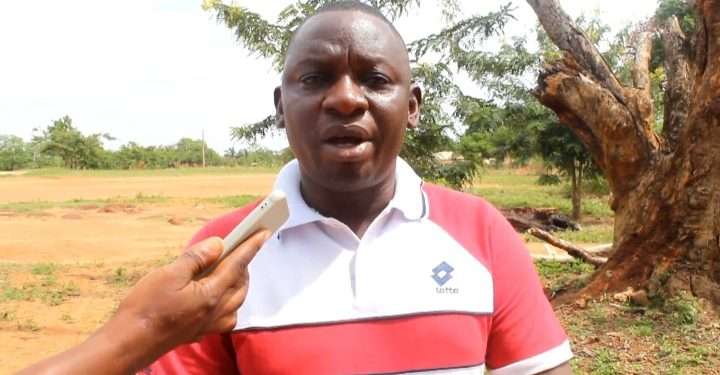Member of Parliament for the Kintampo North constituency, Hon. Joseph Kwame Kumah has observed that poor funding of Basic Education in the country has not only affected poor infrastructure, but also resulted in poor performance in this sector.
He noted that whereas secondary school education expenditure increased between 2008 and 2020 that of basic education spiraled downward within the same 12 year period.
Hon. Kumah made this known through a well-researched statement he read on the floor of Parliament last Tuesday.
He pointed out that whereas GH¢74 million was allocated by GetFund to SHS in 2021 and disbursement shot up to GH¢100 million representing 35.5% in expenditure, for the sector, that of the Basic Education was allocated only GH¢66 million. According to him, of the GH¢25million disbursed by GOG, Basic Education received only a quarter.
“This explains why about 5,400 schools are under trees and 40% of Basic school pupils lack desks and chairs in schools. The sum effect is poor basic school infrastructure, leading to poor quality education!” he bemoaned.
Let’s Revisit FCUBE, A Constitutional Imperative
Referring to FCUBE (Free Compulsory Universal Basic Education) as a constitutional imperative, Hon. Kumah called for a re-visitation of the programme.
He pointed out that the programme saw implementation in 1995 under Late President Jerry John Rawlings administration with further implementation boosting in 2005 by the Kuffuor administration.
Hon. Kumah stated that the focus of this programme was to achieve a rate of education for school-going children after attaining school – going age for free.
The MP pointed out that among the numerous objectives of the FCUBE was a step to expand and promote good and quality education through Basic Education as well as to supply material and infrastructure that aids teaching and learning adequately in all public schools in the country.
Hon. Kumah eulogized Late President John Evans Atta Mills, under whose tenure Ghana recorded 8.14% in 2011, in terms of education expenditure per GDP rating, one of the highest in the country. He regretted that Ghana’s current allocation of 3.6% (in 2021) and 3.5% (in 2022) of GDP to education is far below that of the UNESCO threshold of 4%.
Areas Worst Hit
The Honorable Member noted that worst hit in this situation are the deprived areas, which include his own constituency, Kintampo North. According to him, there are 15 schools under trees and 21 primary schools without JHS, with school children having to travel between 10 and 12 kilometres a day to access education.
“After 65 years of independence, and the numerous natural resources the country is blessed with, this should not be the plight of the Ghanaian child!”, he exclaimed.
He continued, “Mr. Speaker, with current statistics showing that there are some 5,403 schools under trees, and dilapidated structures across the country without adequate desks and ventilation, there is an urgent infrastructure deficit which needs to be addressed”, he stated.
Hon. Kumah noted however that the recent introduction of the free SHS policy has worsened the situation since the government’s concentration has been on secondary education to the neglect of basic education. Nevertheless, in as much as the free SHS policy is a bold and ambitious initiative, which must be commended, it is expected that such an initiative will be built on a very strong basic education foundation in consolance with the Biblical advice in Matthew 7:24 – 27, to build our homes on the rock, so that when the rain comes, it shall not be blown away.
“We as a nation will be deceiving ourselves if we believe that putting all our eggs into one basket, i.e only secondary education will invite positive benefits when the basic education system is weak, as it is often said in Information Technology, “Garbage In, Garbage Out” and if I am allowed to plagiarize the ever popular statement made by Osagyefo Dr. Kwame Nkrumah on the eve of Ghana’s independence, I wish to state unequivocally that ‘Free SHS is meaningless unless it is linked to a strong Basic Education,” he propounded.
By S. O. Ankamah

